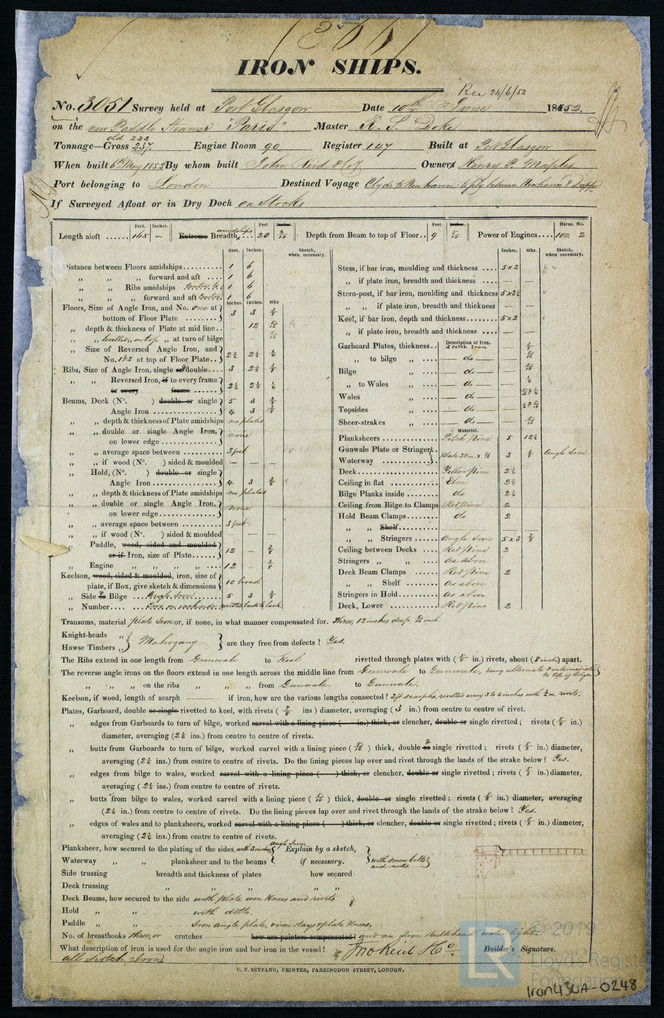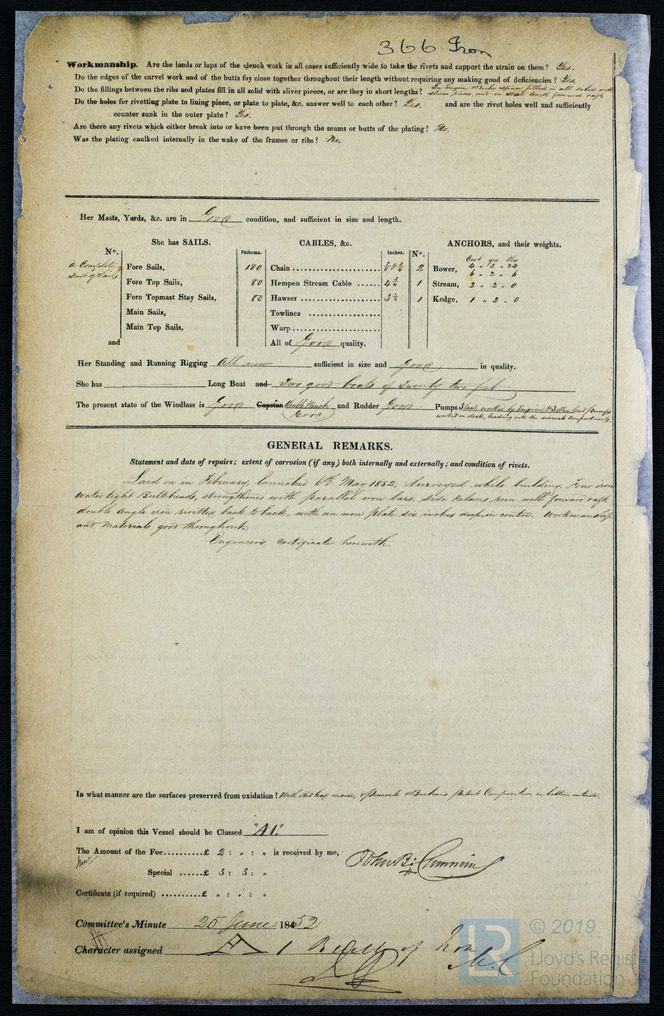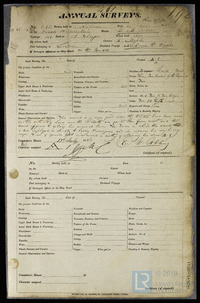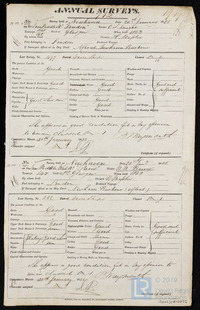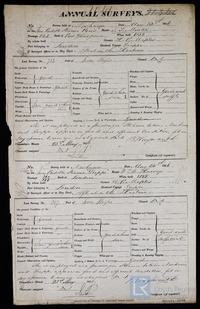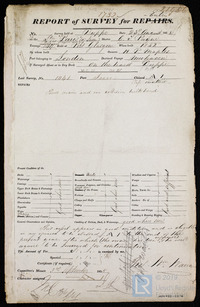- Related documents Related
- Full details Details
- Report document? Report?
Use the data export button to extract customised data sets from the Ship Plan and Survey Report Collection. Available in TSV and CSV formats.
Date recorded as the time of writing.
10/06/1852
The year in which a vessel’s construction is completed.
1852
The individual and/or organisation listed as having been responsible for constructing the vessel. This can/may be the same as the owner and/or manager.
John Reid & Co
The name of the yard where the vessel was built.
East Yard
Abbreviations of the names of ports with Lloyd’s Register survey offices.
Irn
Official administrative title (often printed) of a record used by Lloyd’s Register or external organisations.
Iron Ships
The listed port to which a given vessel belongs.
London
The individual and/or organisation listed
Henry & Maples
Name of the individual/entity/organisation responsible for authoring the record
John Barr Cumming
Location where a vessel’s survey was undertaken.
Port Glasgow
Date of the meeting of the Classing Committee.
25/06/1852
The name of the port/place of destination given.
Clyde; Newhaven; Plymouth; Dieppe
Predominant material(s) utilised in a vessel’s construction.
Iron
System of admeasurement referred to as ‘Builder’s Old Measurement’ (BM or BOM) in place between 1786 and 1836.
222
Confirmation as to whether the vessel was equipped with refrigeration machinery to aid in the transport of frozen or chilled cargo/goods.
No
Does the vessel possess an auxiliary power source?
No
Is electric lighting fitted to the vessel?
No
Physical extent of a record.
1
Name of ship as recorded on the record
Paris
The process of transferring a vessel to water, but not necessarily her completion.
06/05/1852
Name of the shipbuilder as it appears on the record.
Jno Reid & Co
The port or place in which the vessel’s construction took place, at the time of writing.
Port Glasgow
Unique internal numbers used for identifying, referring and retrieving a specific survey report.
366
Additional numbers that feature on a given record that may be used for identification.
Greenock 3051
Records that constitute Lloyd’s Register’s first official encounters with a specific vessel, e.g. a survey report.
Y
An officially licensed mariner (post 1850) holding ultimate command and responsibility for a vessel.
R S Doke
Location where the document is written.
Greenock
Classification symbol assigned to a vessel by Lloyd’s Register’s Classing Committee denoting the quality of construction and maintenance.
A1 Built of Iron; Mc
Recorded information related to a vessel’s movements.
Port Glasgow; Clyde; Newhaven; Plymouth; Dieppe
A vessel’s means of propulsion.
Steam
Is the steamer assisted by sail?
No
System of measurement that replaced ‘Builder’s Old Measurement’, taking a vessel’s internal capacity as the standard. Vessels built between 1836 and 1854 were legally required to display both tonnages.
237
Is machinery fitted at the aft of the vessel?
No
Generally a smaller additional auxiliary boiler (often used while the vessel is at port).
No
Name of the Proving House responsible for the public testing and certification of a vessel’s anchors and/or chain cables.
No
Report an issue with this document
Have you noticed missing or incorrect data or images for this document?
Please let us know and we will rectify the issue as soon as possible.

